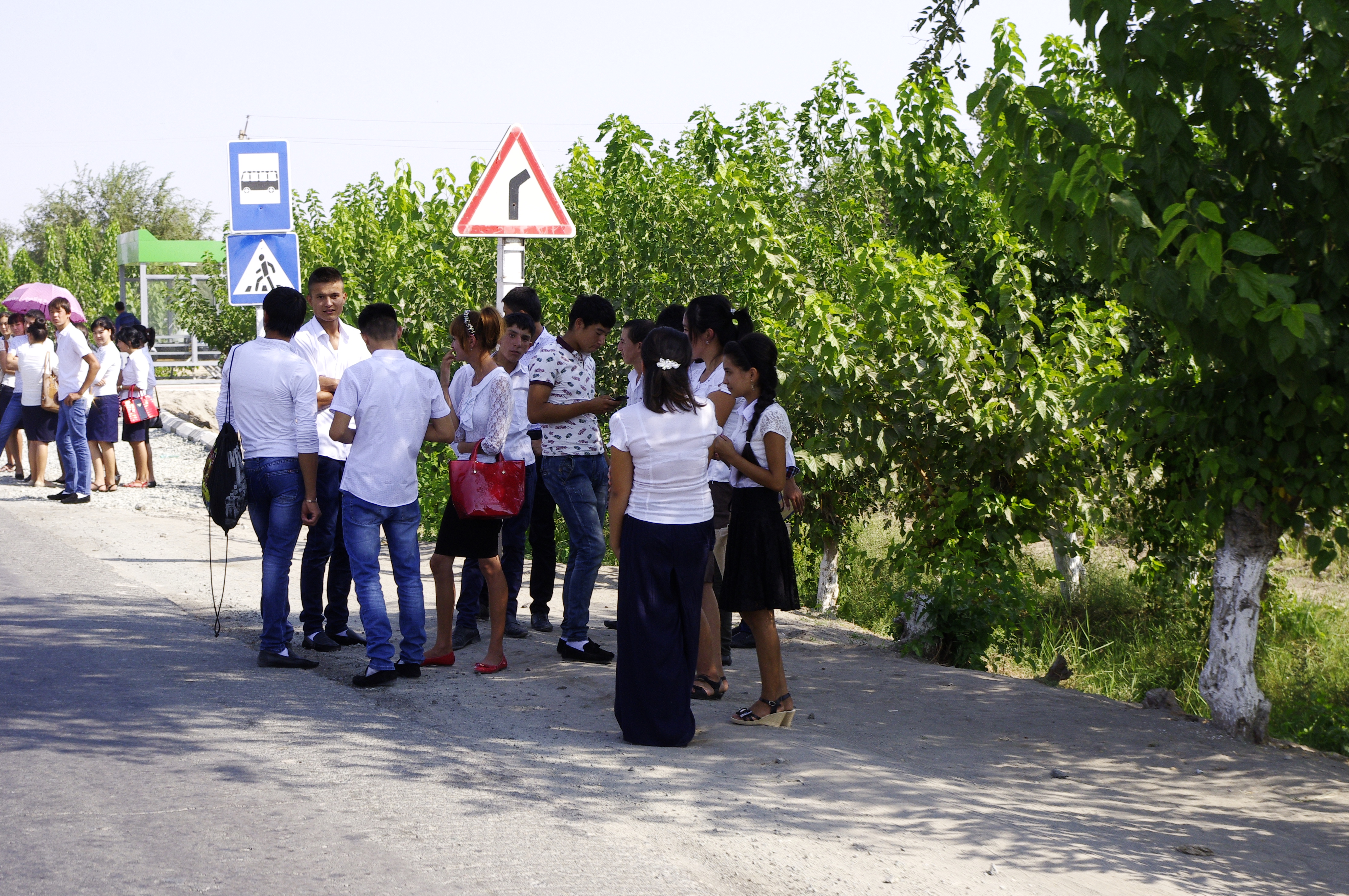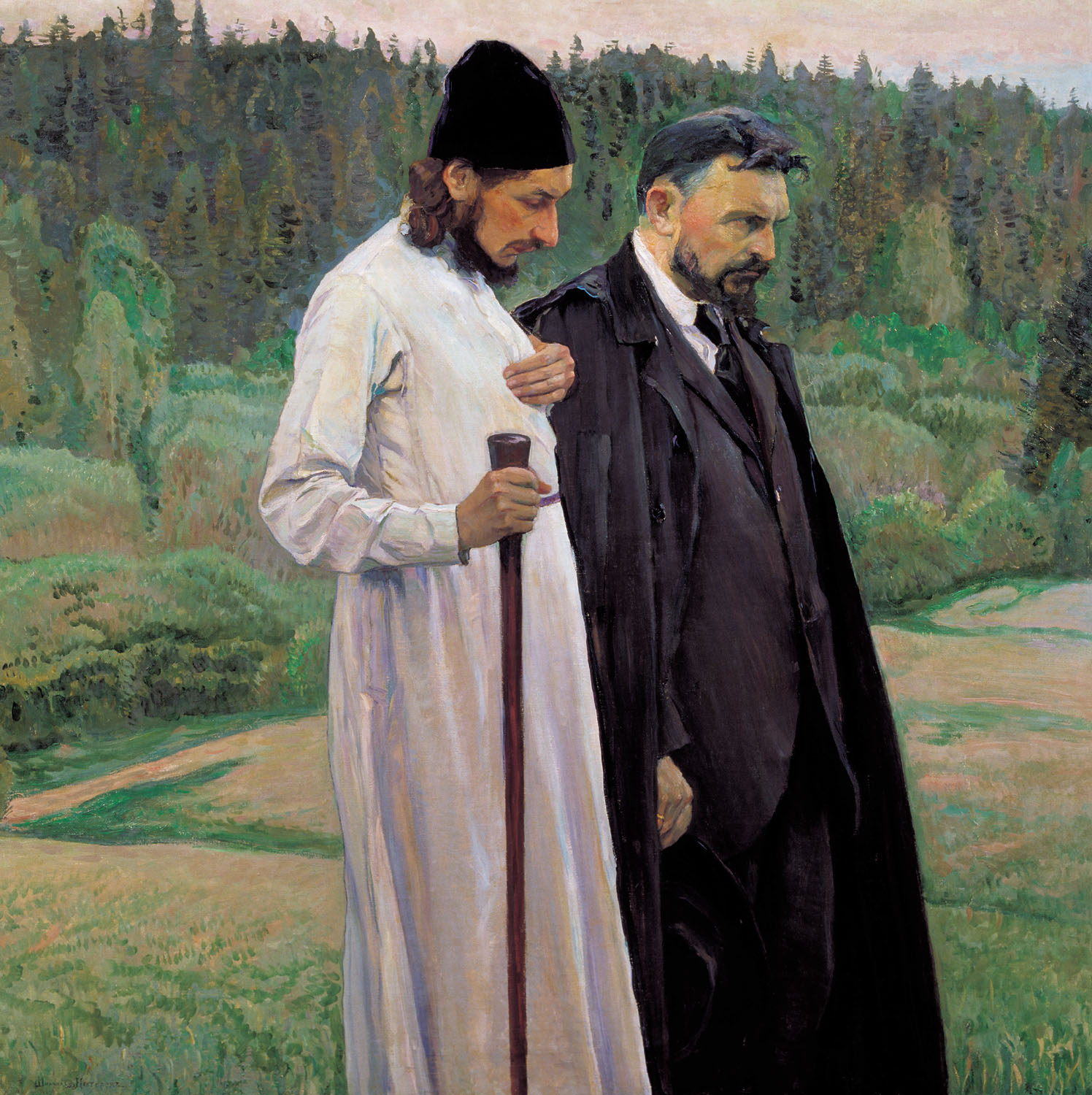|
Ibrohim Moʻminov
Ibragim Muminov (Russified form Ibraghim Muminov) (, November 7, 1908, Tezguzar – July 22, 1974, Tashkent) was an Uzbek intellectual and scholar. Founder of the philosophical school in Uzbekistan. Early life Muminov initially studied at maktab – a Muslim school, and after 1920, opportunities for studying at the Soviet school appeared. In 1922–1927 he studied at the Institute of Education in Bukhara, since 1925 he was a teacher at the school. Muminov in the late 1920s continued his studies in the capital of Uzbekistan – Samarkand, where he graduated from the socio-economic faculty of the Uzbek Pedagogical Academy with a degree in history, philosophy in 1931. Academic career Muminov was an active participant in the creation of the Samarkand State University. In 1933, a joint literary faculty was appointed dean. From 1933 to 1935 he was dean of the history department of SamGU. Until 1941, he headed the department of philosophy. In 1937, the NKVD, on a false denunciation ... [...More Info...] [...Related Items...] OR: [Wikipedia] [Google] [Baidu] |
Tashkent
Tashkent (), also known as Toshkent, is the Capital city, capital and List of cities in Uzbekistan, largest city of Uzbekistan. It is the most populous city in Central Asia, with a population of more than 3 million people as of April 1, 2024. It is located in northeastern Uzbekistan, near the border with Kazakhstan. Before the influence of Islam in the mid-8th century AD, Sogdian people, Sogdian and Turkic people, Turkic culture was predominant. After Genghis Khan destroyed the city in 1219, it was rebuilt and profited from its location on the Silk Road. From the 18th to the 19th centuries, the city became an Tashkent (1784), independent city-state, before being re-conquered by the Khanate of Kokand. In 1865, Tashkent fell to the Russian Empire; as a result, it became the capital of Russian Turkestan. In Soviet Union, Soviet times, it witnessed major growth and demographic changes due to Population transfer in the Soviet Union, forced deportations from throughout the Soviet Unio ... [...More Info...] [...Related Items...] OR: [Wikipedia] [Google] [Baidu] |
Order Of The Badge Of Honour
The Order of the Badge of Honour () was a civilian award of the Soviet Union. It was established on 25 November 1935, and was conferred on citizens of the USSR for outstanding achievements in sports, production, scientific research and social, cultural and other forms of social activity; for promotion of economic, scientific, technological, cultural and other ties between the USSR and other countries; and also for significant contribution to basic and applied research. The order was awarded 1,574,368 times. The "Order of the Badge of Honour" was replaced by the "Order of Honour" () by a Decree of the Presidium of the USSR on 28 December 1988. Following the USSR dissolution, it was replaced by the " Order of Honour" of Russia, established by Presidential Decree no. 442 of 2 March 1994.Ельцин, Б.Н. (2 марта 1993 г.)"Указ Президента Россиийской Федерации о госудаственных наградах Российской Фед� ... [...More Info...] [...Related Items...] OR: [Wikipedia] [Google] [Baidu] |
Uzbekistani Philosophers
Demographic features of the population of Uzbekistan include population growth, population density, ethnicity, education level, health, economic status, religious affiliations, and other aspects of the population. The nationality of a person from Uzbekistan is Uzbekistani, while the ethnic Uzbek majority call themselves Uzbeks. Much of the data is estimated because the last census was carried out in Soviet times in 1989. Overview Uzbekistan is Central Asia's most populous country. Its 36.8 million people (as of January 2024) comprise nearly half the region's total population. The population of Uzbekistan is very young: 30.1% of its people are younger than 14. According to official sources, Uzbeks comprise a majority (84.4%) of the total population. Other ethnic groups, as of 1996 estimates, include Russians (2.1% of the population), Tajiks (4,8%), Kazakhs (3%), Karakalpaks (2.5%), and Tatars (1.5%). Uzbekistan has an ethnic Korean population that was forcibly relocated to the ... [...More Info...] [...Related Items...] OR: [Wikipedia] [Google] [Baidu] |
Soviet Philosophers
Russian philosophy includes a variety of Philosophical movement, philosophical movements. Authors who developed them are listed below sorted by movement. While most authors listed below are primarily philosophers, also included here are some Russian literature, Russian fiction writers, such as Tolstoy and Dostoyevsky, who are also known as philosophers. Russian philosophy as a separate entity started its development in the History of Russia (1892–1917), 19th century, defined initially by the opposition of Westernizers, advocating Russia's following the Western political and economical models, and Slavophiles, insisting on developing Russia as a unique civilization. The latter group included Nikolai Danilevsky and Konstantin Leontiev, the early founders of eurasianism. The discussion of Russia's place in the world has since become the most characteristic feature of Russian philosophy. In its further development, Russian philosophy was also marked by deep connection to literatur ... [...More Info...] [...Related Items...] OR: [Wikipedia] [Google] [Baidu] |
Academic Staff Of Samarkand State University
An academy (Attic Greek: Ἀκαδήμεια; Koine Greek Ἀκαδημία) is an institution of tertiary education. The name traces back to Plato's school of philosophy, founded approximately 386 BC at Akademia, a sanctuary of Athena, the goddess of wisdom and skill, north of Athens, Greece. The Royal Spanish Academy defines academy as scientific, literary or artistic society established with public authority and as a teaching establishment, public or private, of a professional, artistic, technical or simply practical nature. Etymology The word comes from the ''Academy'' in ancient Greece, which derives from the Athenian hero, ''Akademos''. Outside the city walls of Athens, the gymnasium was made famous by Plato as a center of learning. The sacred space, dedicated to the goddess of wisdom, Athena, had formerly been an olive grove, hence the expression "the groves of Academe". In these gardens, the philosopher Plato conversed with followers. Plato developed his sessions ... [...More Info...] [...Related Items...] OR: [Wikipedia] [Google] [Baidu] |
People From Bukhara Region
The term "the people" refers to the public or common mass of people of a polity. As such it is a concept of human rights law, international law as well as constitutional law, particularly used for claims of popular sovereignty. In contrast, a people is any plurality of persons considered as a whole. Used in politics and law, the term "a people" refers to the collective or community of an ethnic group or nation. Concepts Legal Chapter One, Article One of the Charter of the United Nations states that "peoples" have the right to self-determination. Though the mere status as peoples and the right to self-determination, as for example in the case of Indigenous peoples (''peoples'', as in all groups of indigenous people, not merely all indigenous persons as in ''indigenous people''), does not automatically provide for independent sovereignty and therefore secession. Indeed, judge Ivor Jennings identified the inherent problems in the right of "peoples" to self-determination, as i ... [...More Info...] [...Related Items...] OR: [Wikipedia] [Google] [Baidu] |
1974 Deaths
Major events in 1974 include the aftermath of the 1973 oil crisis and the resignation of President of the United States, United States President Richard Nixon following the Watergate scandal. In the Middle East, the aftermath of the 1973 Yom Kippur War determined politics; following List of Prime Ministers of Israel, Israeli Prime Minister Golda Meir's resignation in response to high Israeli casualties, she was succeeded by Yitzhak Rabin. In Europe, the Turkish invasion of Cyprus, invasion and occupation of northern Cyprus by Turkey, Turkish troops initiated the Cyprus dispute, the Carnation Revolution took place in Portugal, the Greek junta's collapse paves the way for the establishment of a Metapolitefsi, parliamentary republic and Chancellor of Germany, Chancellor of West Germany Willy Brandt resigned following an Guillaume affair, espionage scandal surrounding his secretary Günter Guillaume. In sports, the year was primarily dominated by the 1974 FIFA World Cup, FIFA World ... [...More Info...] [...Related Items...] OR: [Wikipedia] [Google] [Baidu] |
1908 Births
This is the longest year in either the Julian or Gregorian calendars, having a duration of 31622401.38 seconds of Terrestrial Time (or ephemeris time), measured according to the definition of mean solar time. Events January * January 1 – The British ''Nimrod'' Expedition led by Ernest Shackleton sets sail from New Zealand on the ''Nimrod'' for Antarctica. * January 3 – A total solar eclipse is visible in the Pacific Ocean and is the 46th solar eclipse of Solar Saros 130. * January 13 – A fire breaks out at the Rhoads Opera House in Boyertown, Pennsylvania, killing 171 people. * January 15 – Alpha Kappa Alpha, the first race inclusive sorority is founded on the campus of Howard University in Washington, D.C. * January 24 – Robert Baden-Powell's '' Scouting for Boys'' begins publication in London. The book eventually sells over 100 million copies, and effectively begins the worldwide Boy Scout movement. February * February 1 – Lisbon Regicide: Ki ... [...More Info...] [...Related Items...] OR: [Wikipedia] [Google] [Baidu] |
Order Of Outstanding Merit
The Order of Outstanding Merit ( Uzbek: ''Buyuk xizmatlari uchun'') is an order that is currently awarded by the Republic of Uzbekistan. Design The Order of Outstanding Merit is made from 925 probe silver alloy plated with 0.25 micron thick gold. The order itself is a ruby colored eight-pointed star with scattered green colored triangles in between each end of the star. In the center is a blue colored globe with the shape of Uzbekistan on the globe. The globe is surrounded by another white colored circle that says "for great services" on the top and a laurel wreath on the bottom. The intermediate gilded block depicts Uzbekistan's national symbol, a Huma bird spreading its wings against the background of a rising sun. The weight of the order is 65 grams and its height is 7 millimeters. Recipients by year 1996 * Juan Antonio Samaranch – President of the IOC (awarded on August 29, 1996) * Erkin Vohidov – National Poet of Uzbekistan (awarded on November 30, 1996) ... [...More Info...] [...Related Items...] OR: [Wikipedia] [Google] [Baidu] |




